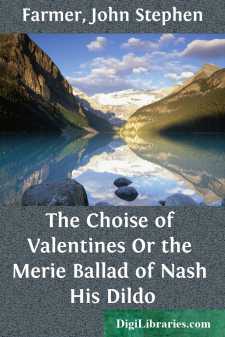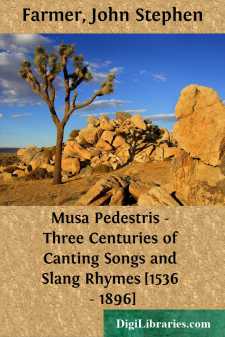Categories
- Antiques & Collectibles 13
- Architecture 36
- Art 48
- Bibles 22
- Biography & Autobiography 813
- Body, Mind & Spirit 142
- Business & Economics 28
- Children's Books 13
- Children's Fiction 10
- Computers 4
- Cooking 94
- Crafts & Hobbies 4
- Drama 346
- Education 46
- Family & Relationships 57
- Fiction 11828
- Games 19
- Gardening 17
- Health & Fitness 34
- History 1377
- House & Home 1
- Humor 147
- Juvenile Fiction 1873
- Juvenile Nonfiction 202
- Language Arts & Disciplines 88
- Law 16
- Literary Collections 686
- Literary Criticism 179
- Mathematics 13
- Medical 41
- Music 40
- Nature 179
- Non-Classifiable 1768
- Performing Arts 7
- Periodicals 1453
- Philosophy 64
- Photography 2
- Poetry 896
- Political Science 203
- Psychology 42
- Reference 154
- Religion 513
- Science 126
- Self-Help 84
- Social Science 81
- Sports & Recreation 34
- Study Aids 3
- Technology & Engineering 59
- Transportation 23
- Travel 463
- True Crime 29
John Stephen Farmer
John Stephen Farmer (1854–1916) was an English lexicographer and author known for his contributions to slang dictionaries and Elizabethan literature. His notable works include "A Dictionary of Slang and Colloquial English," co-authored with W. E. Henley, which catalogued English slang from multiple periods. Farmer also edited collections of early English plays, including "The Tudor Facsimile Texts," a series of facsimile reproductions of Elizabethan and Jacobean dramas. His works remain valuable resources for the study of historical English and its informal uses.
Author's Books:
Sort by:
INTRODUCTION. Nash's "CHOISE OF VALENTINES" has apparently come down to us only in manuscript form. It is extremely doubtful (Oldys notwithstanding), whether the poem was ever before accorded the dignity of print. Nor would it now be deemed worthy of such were the only considerations those of literary merit or intrinsic value: truth to tell there is little of either to recommend it. But,...
more...
FOREWORDS When Harrison Ainsworth, in his preface to Rookwood, claimed tobe "the first to write a purely flash song" he was very wide of themark. As a matter of fact, "Nix my doll, pals, fake away!" had beenanticipated, in its treatment of canting phraseology, by nearly three centuries, and subsequently, by authors whose names stand high, in other respects, in English literature. The...
more...



